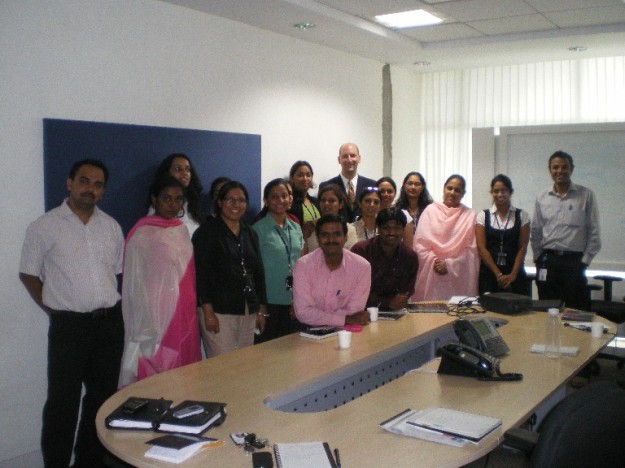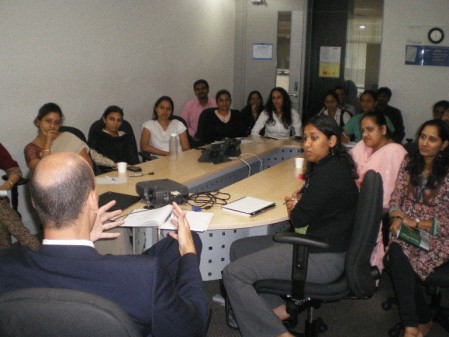At our first Global Entrepreneur Smartcamp event of 2011 last week in Bangalore – I was asked to share my observations and advice on how the mentors for the startups can be most effective and helpful as they coach the companies throughout the event. So I shared my five key tips for mentors –
1) Rely on your expertise and experience – each of you as mentors were selected based on your expertise and experience, so leverage that as the key areas that you coach the entrepreneurs on – and stick to those areas you know best.
2) Ask good questions – rather than telling them what to do or making statements. Too often mentors want to tell an entrepreneur how to position their solution, or how to adjust their business model. Instead by asking effective questions mentors can get the entrepreneur to think in new ways, to explore new options that might lead to a richer set of ideas than just the one idea or approach that might be thought of by the mentor. This is the essence of good “coaching” and socratic teaching at it’s finest.
3) Help entrepreneurs see connections across the elements of their business model. As senior business leaders and mentors, you are all experienced in seeing connections across various business models – e.g. understanding how certain pricing models will impact route to market and sales models, which might impact a customer acquisition vs. retention strategy and have impact on marketing and solution delivery. But often times entrepreneurs are not as experienced at seeing the inter-relationships of these business model elements and don’t see the interdependencies – or they assume items are inter-dependent when they don’t have to be. As mentors helping them see these connections is a critical area we can add real value.
4) Help them learn to anticipate. Given our collective experience in working with startups – we all know that the ability to anticipate changes in the marketplace and being able to evolve the initial idea is the key to success. Ask good questions about how the solution might evolve based on client feedback, how the business might be able to pivot based on either existing or new entrant competitor moves, or based on changes in technology or value capture strategies. Anticipating well is a key to survival.
5) Help them refine their value proposition and communications. The single area we most often see significant same-day improvement in during a Smartcamp is helping the startup improve the clarity of their customer value proposition. Often times the most impactful area we can help them is in clarifying the customer problem they are actually trying to solve, and crisping up their statement of value and 30-second elevator pitch to prospective clients. By helping them refine the positioning of the solution and the messaging of their unique value and selling proposition, we can really strengthen the startup’s chance of getting those first key clients.
I hope you find these tips helpful as we all work to coach and mentor these exciting startup companies!



